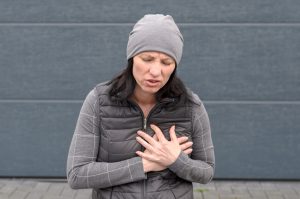 It’s important to be aware of the effects that cold, windy winter weather can have on your cardiovascular system. For some people, this weather can increase the risk of developing a serious medical problem; for others, particularly people who already have a cardiovascular condition, this weather can worsen the symptoms they experience and potentially lead to further complications.
It’s important to be aware of the effects that cold, windy winter weather can have on your cardiovascular system. For some people, this weather can increase the risk of developing a serious medical problem; for others, particularly people who already have a cardiovascular condition, this weather can worsen the symptoms they experience and potentially lead to further complications.
The heart plays a vital role in maintaining your internal body temperature. If this temperature can’t stay above 95 degrees Fahrenheit, you could experience hypothermia, leading to potential symptoms such as a lack of coordination, fatigue, and confusion. To avoid this, your heart may have to work harder to keep you warm. This stress on your heart is even greater if you’re performing a physical outdoor activity, such as shoveling snow or jogging. You may begin to experience symptoms such as chest pain or even a heart attack.
There are certain steps you can take to protect yourself against these risks throughout the winter season. Some of these include:
- Taking frequent breaks to rest while performing a physical activity
- Wearing multiple warm layers (including at least one water-resistant outer layer)
- Staying hydrated, particularly while performing a physical activity
If you have a heart condition, are at risk of developing one, or are experiencing symptoms, you should consult a cardiologist to explore the most effective precautions you can take to protect your health during the winter season. You can schedule an appointment with a cardiologist at Jamaica Hospital Medical Center by calling (718) 206-7100.
All content of this newsletter is intended for general information purposes only and is not intended or implied to be a substitute for professional medical advice, diagnosis or treatment. Please consult a medical professional before adopting any of the suggestions on this page. You must never disregard professional medical advice or delay seeking medical treatment based upon any content of this newsletter. PROMPTLY CONSULT YOUR PHYSICIAN OR CALL 911 IF YOU BELIEVE YOU HAVE A MEDICAL EMERGENCY.
